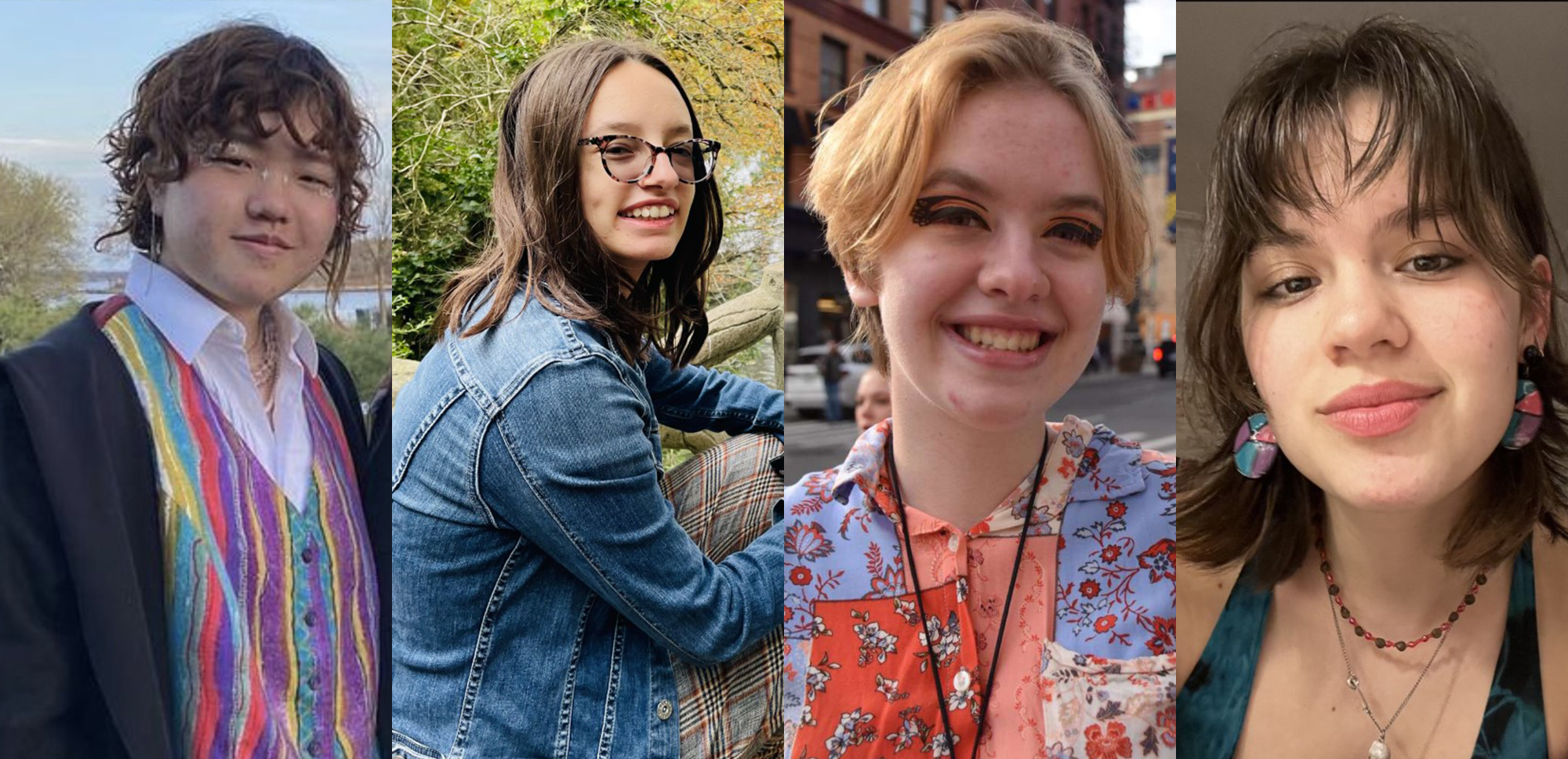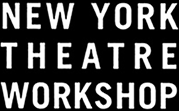

Mind the Gap is a free intergenerational theatre program in which elders [ages 60+] and youth [ages 14-19] interview each other and write or devise short plays inspired by their personal stories. Our Education Associate, Psacoya Guinn, sat down for a conversation with a few of the teens in the Spring 2022 cohort: Ayami Takayama, Imogen Russell, Kady Nankivel, and Miranda Henry. They discuss the program, their writing process, and their misconceptions of elders.
WHY WERE YOU INTERESTED IN APPLYING TO MIND THE GAP?
AYAMI: My dream is to become a screenwriter. But I’ve never written anything before, so I wanted to dip my feet in the water and I thought this was a good opportunity.
IMOGEN: I do write a lot, but I thought I needed to improve some skills. I actually do write a lot of stuff for films, but I don’t write things for plays and I’ve never done plays before, so that was something that I really was interested in doing. It was a new skill that I wanted to learn.
MIRANDA: I’m really fascinated by relationships with elders, and I think the way our two generations mix is something that has changed a lot over the years. So, I really wanted a chance to meet. Plus, I really love theater, so it’s kind of unique because it combines both.
KADY: I am studying theater and writing in college and so when I got the email about Mind the Gap, I was kind of like, “Oh, this is the perfect combination of both of the things I’m learning in school.” But beyond that, I have always loved writing plays. I’m someone who grew up in the theater. And so, having a playwriting workshop with people of my demographic and people of a different one seemed really intriguing to me at the time. And so, I signed up and it’s been great.
WHAT MISCONCEPTIONS DID YOU HAVE ABOUT ELDERS?
AYAMI: The misconception I think I had was that this sort of generational gap was going to cause communication difficulties or just a lack of connection or misunderstandings. But I realize age kind of has nothing to do with that. I think age just means that there’s more stories to tell and the lack of connection, a true connection, I think, is affected by a ton of other factors, but I realize that age is not one. I think I was kind of scared of that.
MIRANDA:I was kind of scared that there was going to be a lack of respect from the elders for us. I was really pleasantly surprised to find that, like, they’re all very respectful and really kind people.
KADY: As a very feminine presenting trans masculine person. I’m kind of just used to being looked down upon, especially by people in the rural Midwest. A lot of elders older than me see me as some anomaly. Some weirdo that doesn’t fit into what they think I should fit into. So coming into this, I thought of those preconceived notions of what I had of the elders that I knew growing up, but through Mind the Gap I have come to realize that we as teens can stereotype elders just as much as they stereotype us.
IMOGEN: I felt that maybe the elders wouldn’t get or that they wouldn’t kind of understand what I’m going through, like with my identity and stuff and so it was nice to hear acceptance immediately and not any ‘Oh well back in my day’ you know that kind of stereotypical thing. It was very open and I felt like I could be myself in front of people.
WHAT’S THE BEST THING ABOUT MIND THE GAP?
AYAMI: The best thing for me is that strangers kind of become family over time. Because we’re strangers, I can kind of share anything about myself, but also still feel kind of supported or loved by the people. And it’s just really cathartic to be part of this writing group. Every single person on here is very mature and very inspiring. It makes me wish that I knew them outside of the weekly meetings. But yeah, the people became family I love.
IMOGEN: OK, that was really sweet, Ayami! I think the conversations. I feel like this is a good constant for me in terms of being able to share things. My partner is interested in what I like, what time I wake up in the morning… And you know, we’ve never met each other before. It’s that magical moment where you kind of feel connected to them even though you know, we only kind of write about them, but you know the moments I think where we get to talk and just share about our regular lives is really nice to me.
KADY: Going off of what Imogen said about the conversations, today me and my partner spent 20 minutes talking about the Kentucky Derby. It was great! Also, really enjoy that Mind the Gap is a safe space for, as Imogen said earlier, to talk about things that you don’t really talk about with other people like your identity or problems that you’re having in life that you can’t really talk to anyone else about. I also think that, at least for me, mind the gap is something I look forward to every week or I’m kind of like oh, this is something that I get to do on my Tuesdays. I’m really excited to get to talk to my partner and get to see what everyone else has done and even when life around me is not always the best, there’s always this shining light of mind the gap standing there and getting me through.
MIRANDA: I definitely agree with everything that has been said and also like the moments of connection with our partners I think are really valuable. Finding out that I had so much in common with my partner was really shocking and sweet and heartwarming. Getting inspired by someone and actually getting to do something with that inspiration, I think is a really rare opportunity and I’m really glad to have it.
WHAT’S ONE THING YOU HAVE LEARNED ABOUT YOURSELF DURING THIS PROCESS?
AYAMI: I think this is kind of dumb because we’re in a playwriting workshop, but one thing I learned about myself is that I actually do love writing. I mentioned before that my dream has been to become a screenwriter for maybe a year now, and I’ve been telling people that, but I’ve actually never tried and I was scared to try because I thought maybe I fell in love with the idea of it. But if I actually tried, I’d suck at it, or I I’d really not like it as much as I thought I would, but doing this kind of confirm that I do love writing, so that’s pretty big for me.
MIRANDA: I was surprised at how willing I was to share and I forgot who brought up this point… But there’s a comfortability that comes with sharing with strangers. Even with the second session I was sharing personal things that I hadn’t with other people. And yeah, I think I learned that and that made me happy.
IMOGEN: I realize that I don’t need to be fully inspired all the time. I think that you kind of take things as they come. When I was writing the first draft I was like really, really stuck and I think I was kind of overthinking it. And then as soon as I got into the actual room with my partner, I was like oh I see and I listened to what she really wanted and now I have a better idea. It’s really just a process and you have to go through that process to reach that great point where people feel fulfilled by your work.
KADY: I guess what I learned about myself through doing Mind the Gap is that it’s OK to do what I want to do. In other writing classes I’ve had, or even just like writing for myself, I’ll sit down and come up with an idea and then something convinces me that people won’t like that idea or it won’t translate the way I want it to, or it won’t work, and my head gets clouded with these thoughts. But in Mind the Gap I’ve done plays where I played around with fantasy and I’ve never done that before. My current play I’m working on, there’s four people playing one person. Originally my head would have been like that’s too convoluted. No one is gonna understand that, but everyone in Mind the Gap has been so receptive to these kind of out-of-the-box ideas and so willing to see beyond the status quo. And so it kind of made me realize you don’t need to do what you think to be a successful writer and to be proud of your work.
The deadline to apply for Summer Mind the Gap is June 5, 2022. Click HERE to apply.
Pictured from l to r: Ayami Takayama, Imogen Russell, Kady Nankivel, and Miranda Henry
Explore more
Categories: Mind The Gap.

 My Cart
My Cart My Account
My Account Gift Certificates
Gift Certificates Find Us
Find Us




